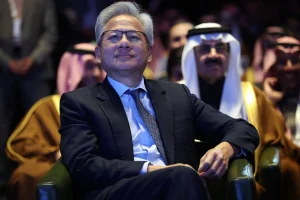Pride in London returns as events struggle with falling funds

On Saturday more than one million people are expected to attend Pride in London, the UK’s largest LGBTQ+ event.
But despite huge visitor numbers, organisers say the event – and others like it around the country – face an uncertain future due to a drop in funding and falling volunteer numbers.
More than 85 Pride organisations say they’ve seen a reduction in corporate sponsorships or partnerships, according to a questionnaire by the UK Pride Organisers Network (UKPON), which said it represents the majority of UK Pride events.
Some celebrations have already been cancelled or postponed, while others are scaling back plans or charging for tickets to what have previously been free-to-attend events.
The UK’s Pride movement began in 1972 when a group called the Gay Liberation Front (GLF) decided that, as well as protesting, it was also important to celebrate the community.
At the time, same-sex couples showing affection in public could have seen them arrested.
Now, Pride events take part across the world, often combining protest, in the form of marches and rallies, with parties and live entertainment.
BBC News has spoken to a number of Pride organisers about their worries for the future of Pride events, and what they believe is behind the drop in funding.


